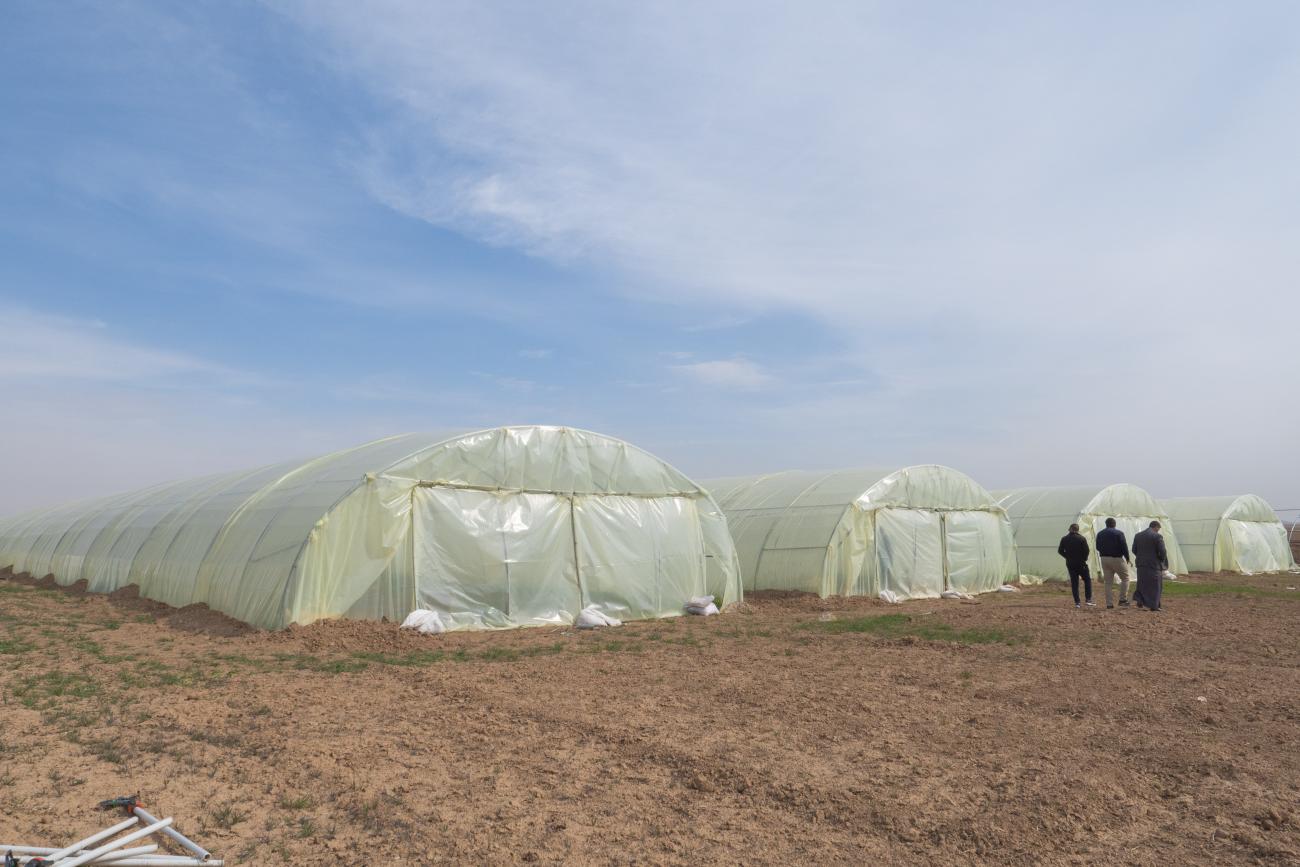Dijlat Al-Khair Alliance: Cultivating change in Iraq

By embracing modern techniques like solar power and greenhouse farming, the farmers of Dijlat Al-Khair are rewriting the rules of agriculture in Mosul.
In the heart of Al-Hamidat, west of Mosul, three determined farmers –Nashwan, Zaid, and Thair – joined forces under the Dijlat Al-Khair alliance. They set out to transform not only their own agricultural practices but the future of farming in their region. Through resilience, innovation, and collaboration, their journey stands as a powerful testament to how community-led initiatives and development programs like SAAVI can create lasting impact.
Rooted in tradition
Nashwan, a farmer with over two decades of experience, comes from a long lineage of wheat growers. Despite their deep-rooted connection to the land, Nashwan and his peers were facing increasing challenges due to outdated techniques, unpredictable yields, and limited access to resources. Like many farmers in the region, their potential was capped not by lack of will, but by lack of support and knowledge.
That changed when they joined the SAAVI project. Nashwan recalls: ‘Before we joined SAAVI, we faced many challenges. One of the biggest issues was the lack of knowledge and experience, especially when it came to modern farming techniques. We didn’t have anyone to guide us or share their experiences with us. But once we got involved with SAAVI, things started to change. We learned a lot, particularly about irrigation, solar energy, and the importance of sharing knowledge with others.’
Zaid added, ‘We attended many workshops and training sessions. The practical training was particularly valuable because it covered everything from planting to harvesting. We learned about better irrigation practices, how to use resources more efficiently, and even how to market our products effectively.’
A network of knowledge and innovation
For Thair and Zaid, the turning point came not just from new tools and techniques but from a shift in mindset. The SAAVI workshops empowered them to think collaboratively, creating WhatsApp groups for sharing insights and coordinating market deliveries.
‘It allowed us to connect with other farmers, share experiences, and learn from each other,’ said Thair.
Investing in a sustainable future
One of the alliance's most transformative decisions was to invest in solar energy. Sparked by a feasibility study in 2020, they installed solar panels in 2022 to reduce their reliance on costly fuel. The results were immediate and dramatic: not only did energy costs plummet, but farm operations became more stable, particularly in the sweltering summer months when electricity is vital.
The alliance also used their block grant funds provided by SAAVI to build greenhouses. These structures proved essential, especially in extending the growing season for tomatoes and strawberries. Now, they can offer fresh produce when others can't – allowing them to meet off-season demand and fetch premium prices.
By adopting modern irrigation lines, upgrading infrastructure, and standardizing quality for large buyers, Dijlat Al-Khair alliance has conducted 23 transactions, delivering 41 tonnes of produce. These partnerships have enabled farmers to receive up to 50% higher prices than they would in traditional local markets like Alwa.
A vision for tomorrow
Looking ahead, the alliance is focused on sustaining the improvements made through SAAVI. They plan to expand their use of plastic crop covers, formalize farming organizations, and promote food security by increasing local production. They are pushing for formal registration of their operations, with aspirations of forming a company that spans across Iraq and opens pathways for export. They see the value in the By Iraqi Hands label—viewing it as a gateway to international markets.
Dijlat Al-Khair’s story is one of transformation—from traditional farming to a thriving, sustainable alliance rooted in knowledge-sharing and innovation. In a region shaped by resilience, their journey is building hope for a more food-secure, empowered Iraq.
The Dijlat Al-Khair Alliance today counts 152 farmer members and is one of 15 agribusiness alliances established by the SAAVI project, funded by the European Union, and implemented by the International Trade Centre (ITC) in partnership with the Norwegian Refugee Council (NRC).

